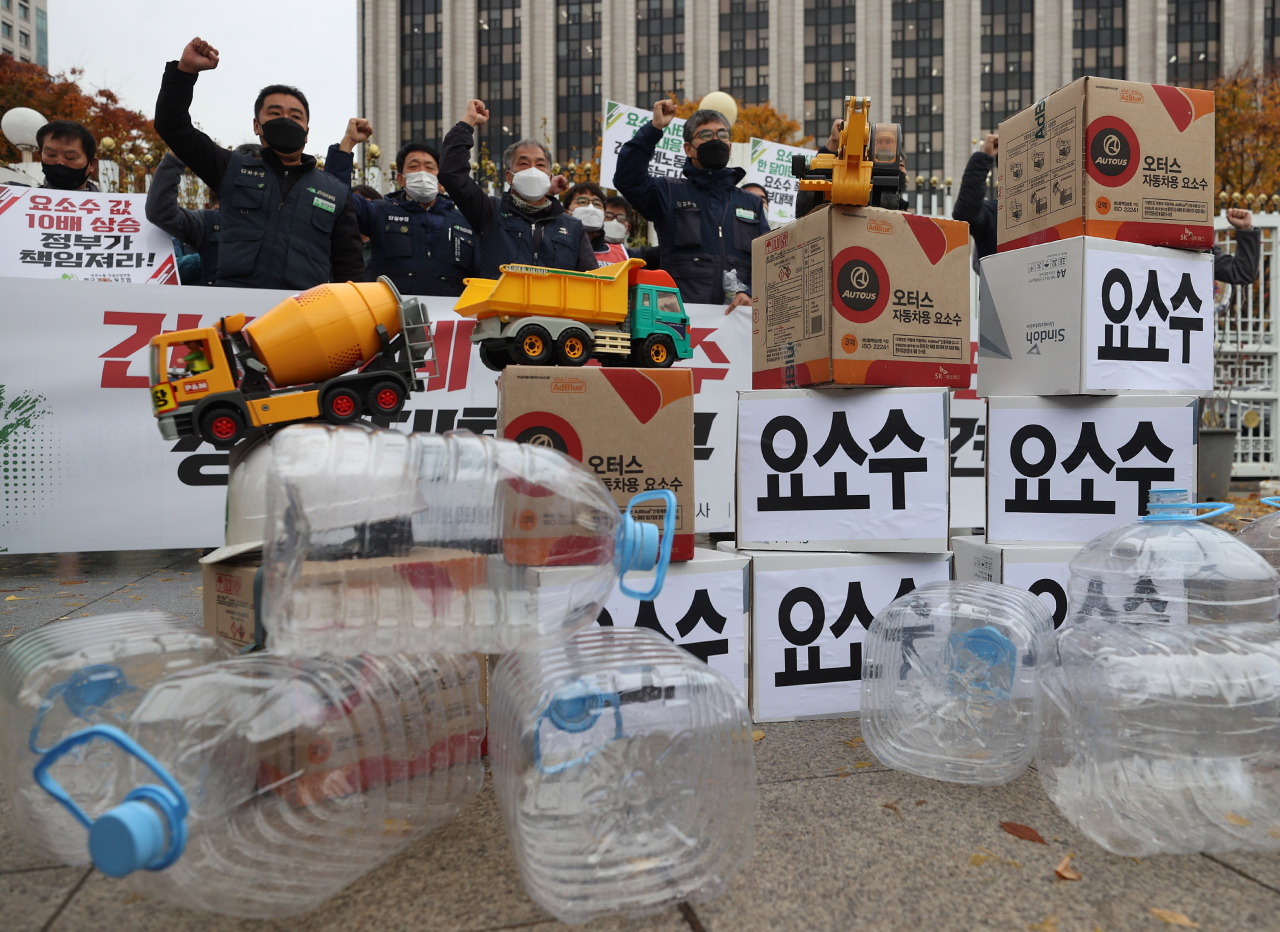 |
Unionized construction workers urge the government to resolve the urea water solution shortage crisis during a news conference held in front of the government complex in central Seoul on Tuesday. (Yonhap) |
Unionized construction workers on Tuesday called upon the government to come up with measures to resolve the urea water solution crisis, claiming the shortage of the material essential to diesel vehicles threatens their livelihoods.
The Korean Construction Workers' Union urged the government to promptly resolve the lack of urea water supply, punish hoarding of the material and aid construction workers facing difficulties operating their equipment due to the crisis.
"My urea water reserves will run out in two to three days ... and the livelihood of my family, including my three kids, will come to a halt completely," Kim Jeong-seok, a dump truck driver, said.
Kim Bong-hyeon, a concrete mixer truck driver, also said he and his coworkers have been sharing urea, but they will likely run out of the material in about 10 days.
According to the union's survey of 253 members, 32.4 percent said they experienced failure to operate their equipment due to the lack of urea water solution. Over 43 percent also said they have tried to purchase the material online from overseas.
The union also said the financial burden of workers has increased as the price of a single barrel of the fluid sharply rose from less than 10,000 won ($8.5) to between 30,000 won and 50,000 won, and over 100,000 won in some cases.
An average of 12-13 barrels of urea water solution is needed per month to operate a dump truck that runs about 200-300 kilometers a day, according to the union.
South Korea has been grappling with a shortage of urea and its surging prices in recent weeks, since China tightened exports of fertilizers and related materials, including urea, in October amid a power crisis caused by a coal supply shortage.
South Korea heavily relies on China for its supply of urea water solution, as 97.6 percent of its imports came from the country in the first nine months of this year. (Yonhap)








